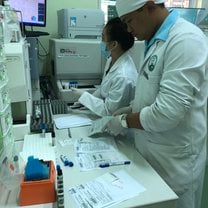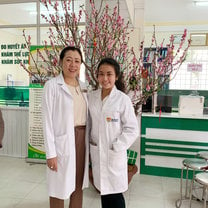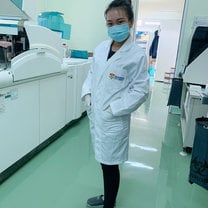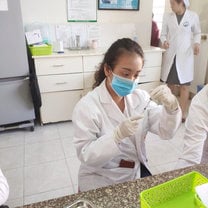I studied International Development at university and as part of the course, we needed some practical community development experience. I’d dealt with many agencies offering experiences overseas – so, so many were overpriced, over-hyped, and business focused. ELI wasn’t.
I had a friend recommend them to me after her experience in South America, and as soon as I made contact with ELI I was nothing but satisfied with the way they communicated, the costs involved, the information and support I received. They were flexible, open, honest, and the price was right – unlike programs that tried to charge me (literally) thousands of dollars to volunteer.
My contact with ELI began and continued so smoothly – they were organized and seemed to legitimately care about who you were, the kind of experience you were looking for, and, most importantly, the aid programs they supported.
I lived in a volunteer share house in Kathmandu, where I was provided with a simple but yummy breakfast and dinner each day. I went to the orphanage Monday-Friday. I’d walk there in the morning, and spend the day – times were flexible – with the children.
I’d teach, play games, and have endless cups of tea provided for me! The children and owners of the orphanage were so welcoming, friendly, appreciative... they had so little but were gave so much, without any hesitation or second thought. What amazing lessons I learnt from their endless curiosity, generosity, and happiness! I’d return back to the volunteer house in the afternoon, and perhaps go up to the shops in Thamel (10 mins walk), or plan my lessons for the next day, hang out with the other volunteers, or talk to family back home.
Weekends were free for any kind of travel – we did lots! We took the bus to other cities, and further afield – 8 hour rocky-mountain-side-wobbly-scary-motion-sickness-hours-delayed-beautifully-scenic-completely-fun bus journeys to the mountains (Anapurna, Everest!), towards the border of india (the birthplace of Buddha!), to beautiful villages far and wide (mountain-peaked sunrises, thousand-step walks, cheap cocktails and momo dinners).
Mountain walks, religious sanctuaries, dinners out, village homestays, national parks, yoga camps, bungee jumping, spiritual havens... our weekends always brought us the unexpected!


















